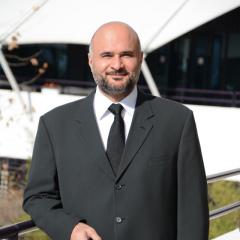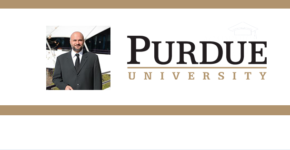 On Purdue University Week: Can virtual reality help you become more open to other people?
On Purdue University Week: Can virtual reality help you become more open to other people?
Mesut Akdere, associate professor in the department of Technology Leadership & Innovation at Purdue University, delves into this question.
Mesut Akdere is an Associate Professor of Human Resource Development in the Department of Technology Leadership & Innovation at Purdue University-West Lafayette. He is the Director of Purdue Polytechnic Leadership Academy which aims to help Polytechnic students gain twenty first century leadership competencies critical for job success and career readiness. Dr. Akdere received his Ph.D. from the University of Minnesota in Human Resource Development with a minor in Human Resources and Industrial Relations from Carlson School of Management.
His research focuses on leadership development and effectiveness, performance improvement through talent development, organizational change through quality management, and global human resources and cross-cultural issues. He conducts research both in the US and internationally. He has published in leadership, business, human resources, management, training & development, organization development, and education journals.
Currently, Dr. Akdere is serving on the Board of Examiners of the Baldrige Performance Excellence Program as well as a reviewer for the Higher Learning Commission of the North Central Association of Colleges and Schools. He is also the Coordinator of the Academy of Human Resource Development Asia Chapter and is a member of the editorial boards of several academic journals including, Human Resource Development Quarterly, Total Quality Management & Business Excellence, Human Resource Development Review, Middle East Management Journal, Human Resource Development International, European of Journal Training & Development, and Advances in Developing Human Resources.
Intercultural Openness
Intercultural openness is critical to organizations in many ways. We live and work in a global world. Employees at every level of an organization need to communicate successfully with diverse coworkers and customers.
While our jobs have been designed to reflect this shift, the educational system doesn’t successfully prepare students to effectively interact across cultures. An attitude of openness can help us become more willing to meet these issues. Leaders lacking this outlook of openness present real challenges to organizational performance as ineffective leadership may result in conflicts among employees as well as a disconnect with customers. Discovering new ways to develop openness is vital for the workforce.
An innovative approach is to study how virtual reality enables individuals to develop specific skills and attitudes, such as empathy, openness, and curiosity. These technologies provide an immersive learning environment that is safe and highly scalable. For example, developing collaborative intercultural team skills through the use of this technology for astronauts participating in space exploration teams can be instrumental in supporting NASA space missions.
In the lab, I study the potential impacts of virtual reality through an alternative, hypothetical reality where learners can experience intercultural simulations. For instance, they might be transported to a business conference in South America or to a meeting with a client in China simply by wearing a headset. It is emotionally safe and much less expensive than sending learners abroad. By challenging their preconceived notions about people from other cultures, this technology enables learners to become more comfortable interacting across differences.

Comments
One response to “Mesut Akdere, Purdue University – Intercultural Openness”
thank you
http://www.ju.edu.jo/
UJ